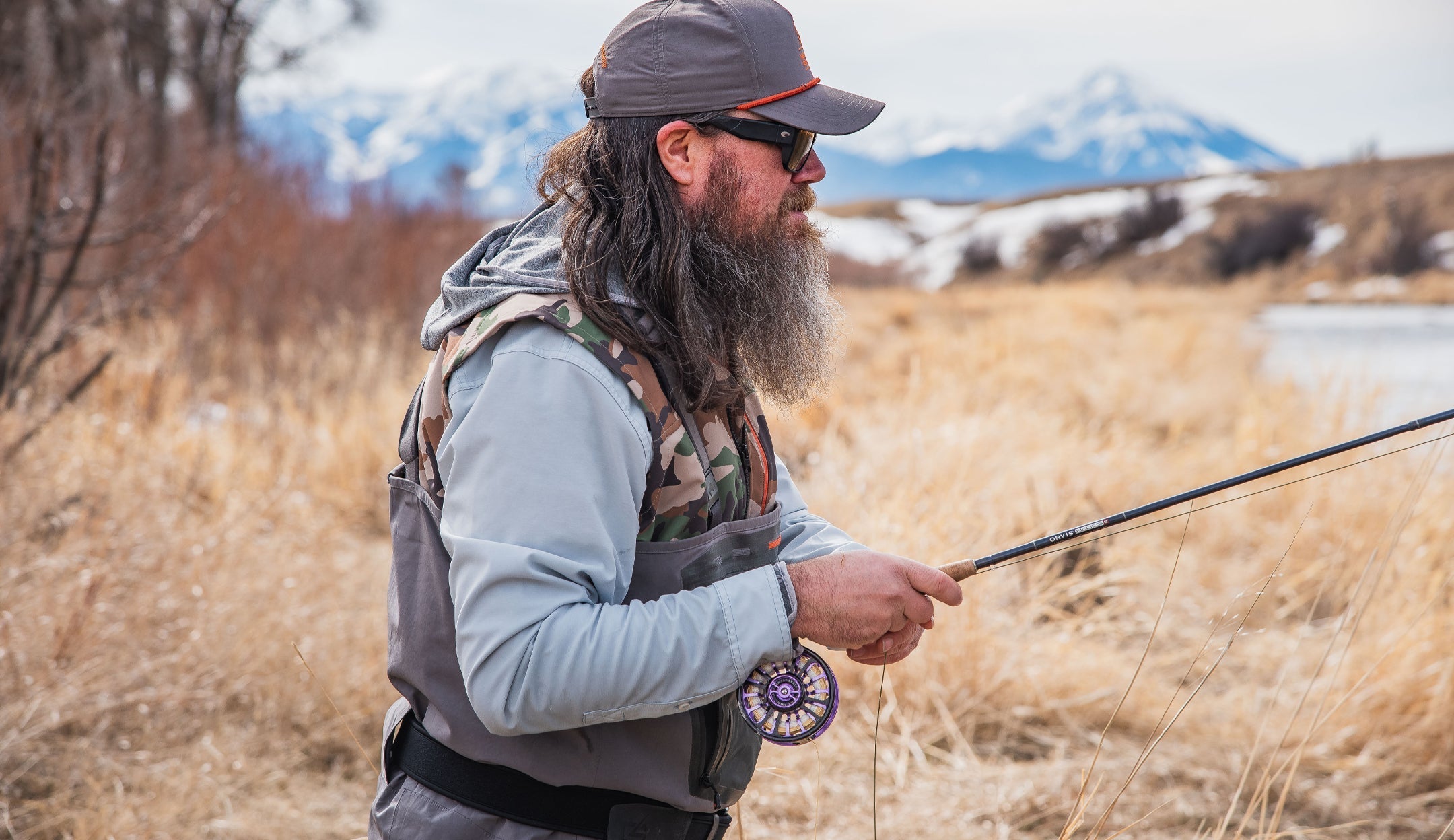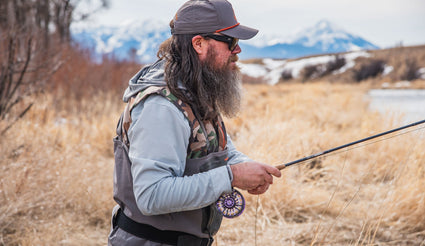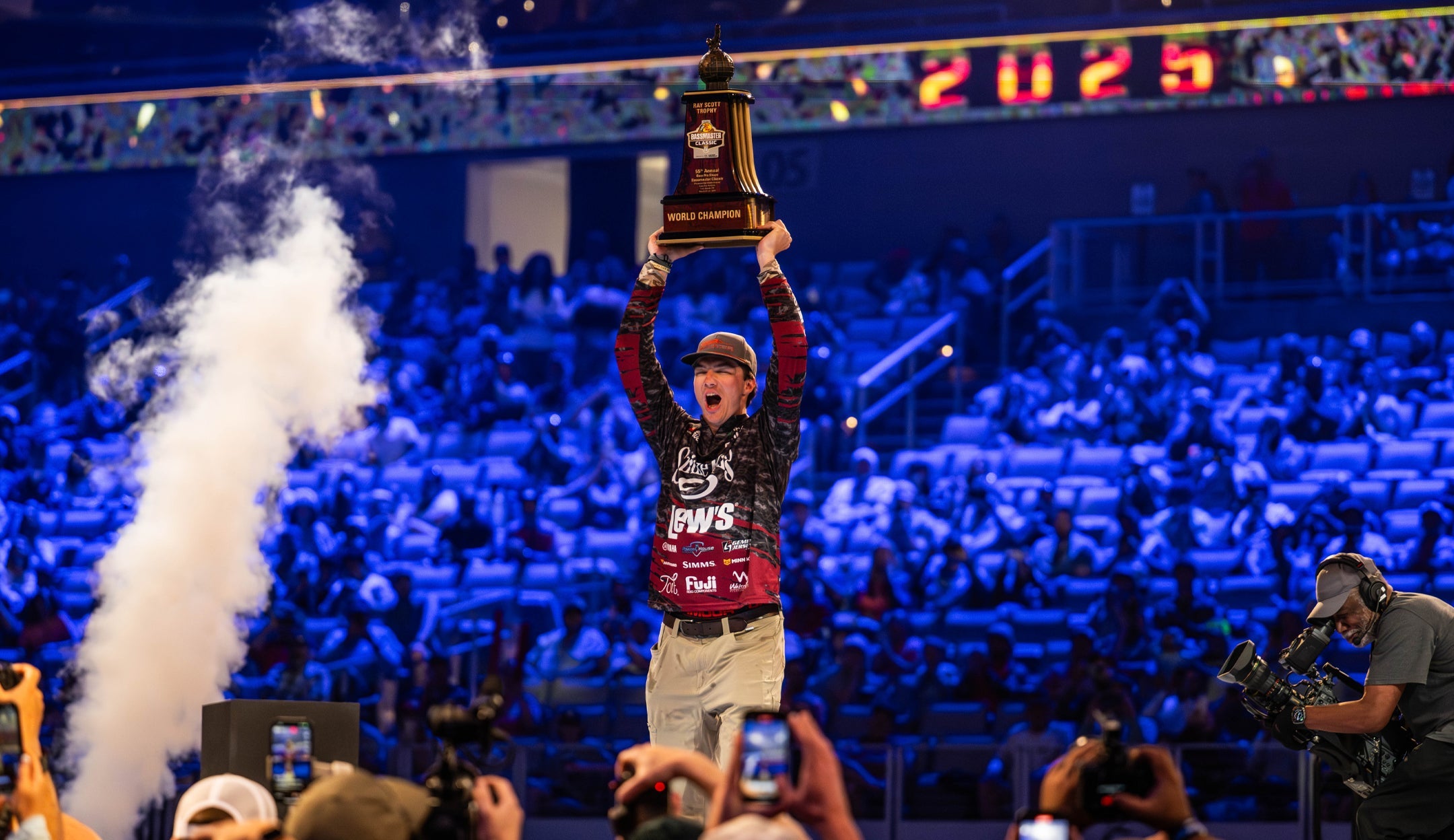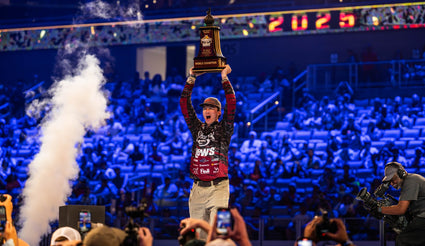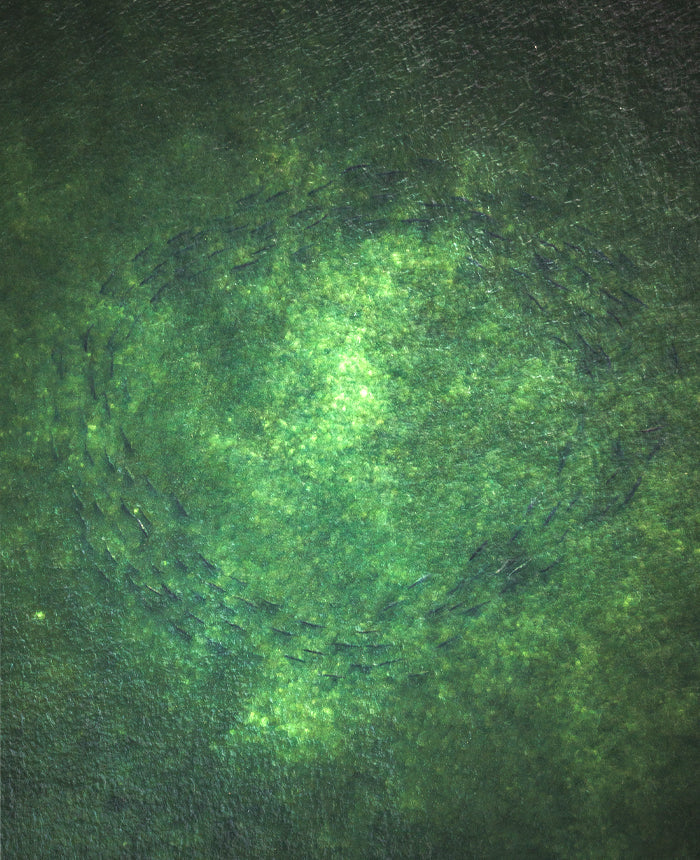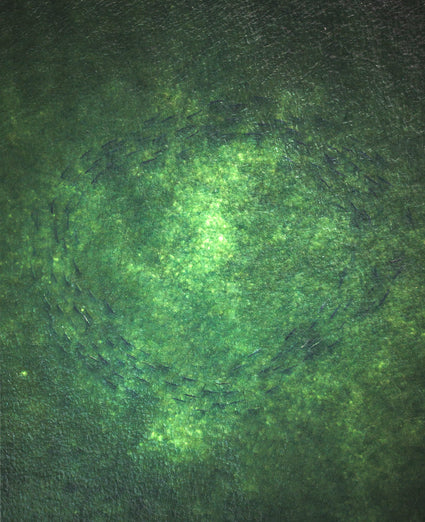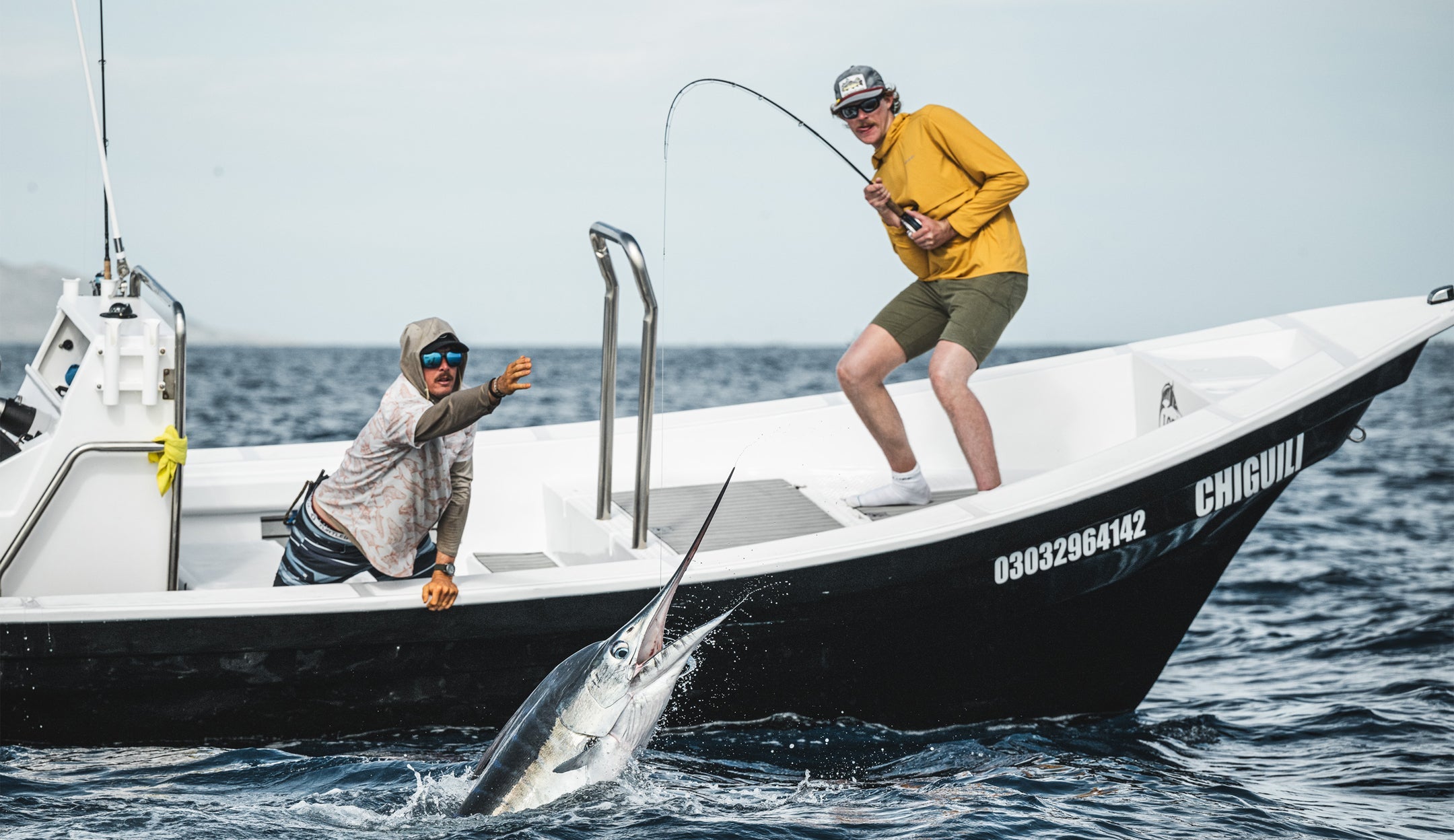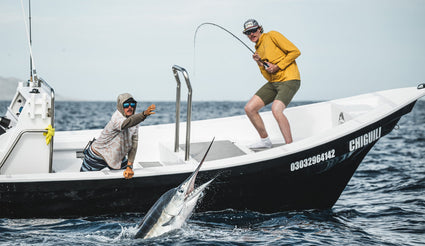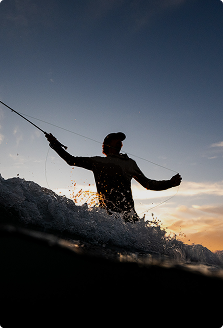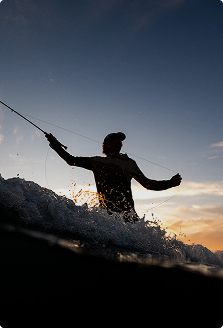One of the fascinating things about the anglers that fish the highly prestigious Bassmaster Elite Series is that they hail from all over the country. You get a ton of guys from the Southeast (for obvious reasons), a ton from the Midwest (again, for obvious reasons), and a few other regions scattered around the country. When you see an angler from Minnesota, for example, who is fishing in the Elite Series — one would assume they are pretty dialed on the northern lake stops that tend to happen in the later parts of the season. An angler from Florida — you would assume they have a leg up on the competition in the earlier parts of the season down south. While this is generally a good rule of thumb to go by, some anglers tend to break that mold. Simms Pro, Matty Wong is without a doubt one of those anglers.
Wong grew up in Oahu, Hawaii, a region that regularly produces world-class surfers, not world-class competitive bass anglers. Because of his unconventional upbringing in relation to competitive bass fishing, we recently sat down with Matty to get the full story of his journey to becoming an Elite Series angler.
Simms: Tell us about your early years? Where you were born, your folks, and what it was like.
Wong: I am the product of Jennifer and Jordan Wong, who actually met on a blind date. One thing that sticks out when you ask about my early years is the word Hanai. In Hawaii, we use the word Hanai as adopted. Even at a very young age, it was apparent to me that my parents were one of only a few couples from my group of friends that were still together.

Simms: The word “Hanai” seems pretty unique to Hawaii, no?
Wong: Yes and no. There's not exactly an equivalent word for it in a place like Texas, but I have Hanai parents in Texas and Alabama for example. I just call them my Alabama parents, but they are Hanai. The year I won the Nationals in 2022 to qualify for the Elites, in my speech when I won, I spoke about just how unique the bass family is. Looking back on it, what I was trying to describe in that speech was Hanai. It's amazing how everyone is connected through the passion of fishing no matter what type.
Simms: That's something we've definitely admired regarding the tour. It’s cool you guys really seem to be a part of these families that exist within the tour. It really seems that even though you are all competing against each other, there's still a ton of love and support for you fellow anglers.
Wong: It’s all about making those human connections, the folks who support you along the way become invested in you. It’s like when I do well in a tournament, they feel that same sense of accomplishment for helping me out along the way. We are not all in this to make a ton of money because that’s just not the true nature of the sport. We're all just trying to make it work and lean on our Hanai.
Simms: So tell us how you got into fishing?
Wong: My father always loved fishing since he was a little kid. Initially, it was his way of spending quality time with me. He was a businessman, always on the go. I was barely out of diapers, but I remember him taking me to the local lake or down to the ocean with a bamboo pole. It really didn't matter what we caught or were fishing for, I was eaten up by the whole experience. I just loved the feeling of something pulling against me. From the beginning, fishing really made me feel alive.
Simms: So you got hooked early on?
Wong: Oh, yeah! It engaged so many receptors, especially for a kid like me. Just recently, I introduced my girlfriend to my neighbor who I would consider one of my Hanai uncles. Ironically, his last name is Wong as well. He played a huge roll in my fishing journey. He really taught me a lot about operating small vessels in large surf. You know, how to read landmarks, find currents, and navigate the ocean. He has this almost Confucius way about his teachings. He really had a massive impact on who I am today. He speaks super thick local pigeon — he’s a local old school guy through and through.
Simms: Yeah, operating a small boat on the ocean is a little different than operating on the lake huh?
Wong: Insanely different.
Simms: Do you remember any of your early learnings of running a small boat in big water?
Wong: Oh yeah. I remember one time I wanted to go out with Mr. Wong when there was a small craft advisory. I was super stubborn and insisted we go out. Once we actually got out there, I suggested that we turn around. Mr. Wong said, “You wanted to go out in the rough water, so we are going out in the rough water." It was like 12’ surf — double overhead. It was big to say the least. We ended up catching a few mahi mahi that day, but more importantly, days like that taught me how to navigate rough seas and how to position the boat within the waves. Things like throttling back and surfing waves back into the harbor.

Simms: Where's Mr. Wong these days?
Wong: He’s 88 now and unfortunately, he's not doing all that well. But last year when I was home, he was still taking the boat out by himself, catching mahi. He's a true Hawaiian OG fish gangster.
Simms: Sounds like an awesome person to learn from. I am sure your time together helped prepared you for some of those gnarlier days out on the lake, huh?
Wong: Oh yeah. I think about St. Lawrence last year. We had big surf and 30mph winds coming from the Southwest. I fished the Canadian side. Coming out of the mouth, it was ripping, 6-8’ faces on these waves. I was chilling, having fun doing top turns on these waves riding troughs all the way back. A lot of the other guys were super scared and had not seen waves like that before, it was second nature to me.
Simms: What about bass? Growing up in Hawaii, how did that happen?
Wong: My dad always liked the lake. In Hawaii, it's ingrained in you that you never turn your back on the ocean. I'm not sure it's an inherent fear of it as much as it is an inherent respect for it. My dad loved going to the lake with me as a kid because it was a bit safer. When he was in college, one of his best friends got him into bass fishing. They went to school in California. His friend's name is Bob Gerbac and Bob is totally a Hanai uncle to me. Uncle Bob used to send me a pack of flukes in the mail and be like, “Hey, Texas Rig these things." This is back when we had Bass Pro magazines and he'd just send me this stuff in the mail. He use to come out to Oahu from time to time and in turn, I would visit him every few years in California. I'd say he was the one who kind of planted the initial bass seed in me. But another one that contributed to my bass journey is my Dad’s barber, Lance. He was this like local Japanese guy who was super big into the bass fishing scene here, and he still is. I used to go get my haircut and he would tell us what’s going on in the lake, what the bite was etc. So, my dad and I would take our little John boat out on the lake and not have to constantly look over our shoulder to keep our eyes on the ocean. Not that I don't love being on the ocean, it's just that being on the lake is pretty chill, which I really liked.
Simms: So, Lake Wilson is the lake you're referencing in Oahu? And there are bass in it?
Wong: Yes. There are peacock and largemouth bass in there. You’re more likely to catch a peacock than you are a largemouth because they are just way more aggressive. Like, I grew up learning how to skip and pitch on Wilson primarily fishing for peacocks.

Simms: So no smallmouth I take it? [laughs]
Wong: Ha! Believe it or not, at one point I actually did have a little sneaky spot that had 2- to 4-pound smallmouth in it. It was this 10-acre man-made pond that's since been destroyed. I remember we would go there as a family and camp. I'd always bring my rod with me to just poke around. This one time I had just got back from visiting my mom’s family in Washington and brought back some spinnerbaits. My first cast, I pitched this spinnerbait out and caught a 3-pounder. From there, my brother and I caught like 20 smallmouth from the bank on this one little section. When I was 14, I caught a 4.25 — it was a couple ounces away from the state record. It's interesting, the smallmouth here look completely different. They’re long and skinny and really seem to have adapted to the streams quite well. I'd be curious to know what strain they are. I believe they were introduced back in the 1970’s. They are actually in all the little streams around here. You can just walk the stream here and catch half to one pounders all day. It would be ridiculous with a fly rod.
Simms: What other species are you catching out there?
Wong: Oh, dude Lake Wilson is wild. People just dump their pets in there. Because of that, there are all these crazy cichlid species. It’s just like an aquarium. There was a rumor there were piranha in there at one point, even snakeheads.
Simms: Are there Bass Boats in Hawaii?
Wong: These days there are. There is the HFFA (Hawaii Freshwater Fishing Association). They actually host small weekly tournaments. There's one dude who has a tricked out Nitro with a 250 on it with scope and Power Poles. You mostly see a bunch of Trackers and a ton of Aluminum Boats. I run my Boston Whaler on the lake. To me, sitting on a cooler and running a little boat like my Whaler with a hand tiller motor, is rad. There definitely are boats on it now, but not a ton. I am going to try to fish a tournament on it this year. I have been debating on whether to send my old Ranger over there, it’s just so damn expensive. It’s a tough one because the boat means so much to me.
Simms: In what way?
Wong: It was my Uncle Bob’s Boat. In 2015 he was diagnosed with a brain tumor and his health degraded super quickly. I was living in LA at the time doing my photo thing. I ended up driving North to take him fishing for his last time in that Ranger. It was a pretty heavy trip. For me, it was this full circle moment where he had brought me along growing up and taught me everything. Now, here I was — caring for him, driving the boat, rigging the rods — heavy moment for sure. Unfortunately, he passed.

Simms: What was your head space like once he passed?
Wong: When it happened, I wasn’t really having a good time in LA. I thought maybe if I took the boat back to Hawaii and started guiding on Lake Wilson, myself and the boat would be in a good place. So, I called my auntie and she told me she had not yet sold the boat. She made it clear that Uncle Bob would want me to have it. She said if you send me a check for $5,000 you can have it. So I bought it. Keep in mind, when I bought it, I didn't have a truck to tow it with. So now, I have a bass boat in California — a major upgrade from shore banging the ponds in LA.
Simms: How did you utilize that boat in California?
Wong: Yeah, so I spent the next 2 years on the California Delta learning how to punch and flip on proper grass. Chatterbaits had just come out so I started messing around with those as well. I learned how to fish with frogs and just really learned a ton about fishing the Delta.
Simms: Were there other professional bass fisherman from Hawaii who came before you? On the Elite Series?
Wong: Dude I am about to blow your mind. The creator of the Senko, Gary Yamamoto was born on Oahu. He grew up fishing for mullet right down the street from me. He went to middle and high school on Oahu, then went to college in California and never came back. It's just crazy how he came from such a small upbringing here and ended up raising Wagyu beef in Texas. His story is wild. He started as an engineer, then through engineering, he learned how to design certain things and went nuclear into bass fishing. Such a crazy story. He is one of those dudes that just has a presence about him.
Simms: How do you keep your game sharp in the offseason?
Wong: It’s more the spiritual recharge for me out here. Having been gone for so long from this place, being forced to change my lifestyle and routine – it means a lot to come back and rediscover my hometown. It’s important for me to tap back into my roots. I only train when I get back stateside. From surfing, to spearfishing, to peacock bass fishing, I become super in-tune with my surroundings in almost a spiritual way. It keeps me sharp to the natural world around me that’s separate from staring at a screen all day. Recently, I've really got into archery. I shot a pig and a goat last year, and it was great to harvest my own food. All these things really help me reset and get into the right mindset when tournament time rolls around again.

Simms: How do you key in on the typical lakes of the BMC Elite Series being all the way out in Hawaii?
Wong: I think it was my freshman year when I was baptized by fire. What I mean is, I needed to get my ass whooped. All artist need a color palate before they can paint a picture, right? Me struggling really gave me a color palate which I never had before. Through the struggles come valuable learning. Now, I can look back at the places that kicked my ass in the past, and return to them with more confidence. Whether it’s the Highland Reservoir in Tennessee or the California Delta, I have some reference points now. In other words, over time, I've developed some spots. I like to do my best to pull things together that fit with my angling style.
Simms: What was your first year on the Elite series like?
Wong: My first year was the most overwhelming for sure. All these new places, a flood of information, complete and total overstimulation. I never had scope, side scan, 360 — all that. I was literally learning side scan while I was practicing for my first Elite series event. I also had all these crazy lures that I had never used before. For example, in Alabama, a Shaky Head is the deal — it’s not at all the deal in California or Hawaii — but I had to learn how to fish it. Now, I'm like bro, Shaky Heads are the deal. Learning those hallmark baits in certain regions and how to apply them are paramount.
Simms: What were some of your more meaningful learnings in that first year?
Wong: Things like being able to go back to spots where you know fish occupy things like single rock structure, using bigger baits, finesse. Things like that. But really another really big one for me was timing. It's tough, but spending the right amount of time in a spot and knowing when it's time to move, why to move, where to move are all so key. Like the whole TVA deal with the currents, you gotta know those bite windows. Once you start to build out knowledge on the spots where you know the fish are in certain lakes, you can really start to become a weapon in the game.
Simms: How would you recommend a kid growing up on Oahu to get into Bass Fishing?
Wong: Believe it or not, I think the connectability that comes from social media is pretty cool these days. It's a tool that allows everyone to learn. You can now understand the opportunities that exists outside of where you live. Also, it's really cool that bass fishing seems to be growing in popularity in general. For example, there is a High School club on Kauai now. I help out with it from when I'm able and it's really rewarding. It's a great group of kids that studies hard and plays hard. All they have are stand-up paddle boards and kayaks to fish their club events from but let me tell you, a couple of them are absolute hammers.








